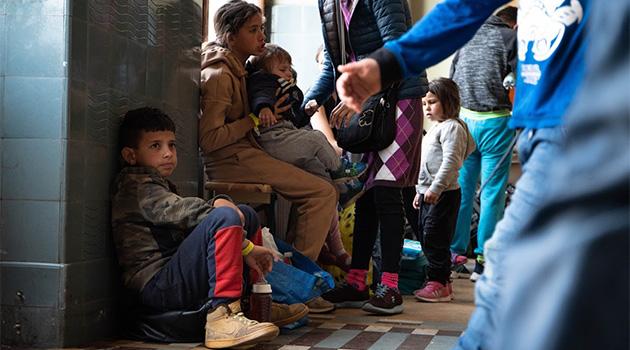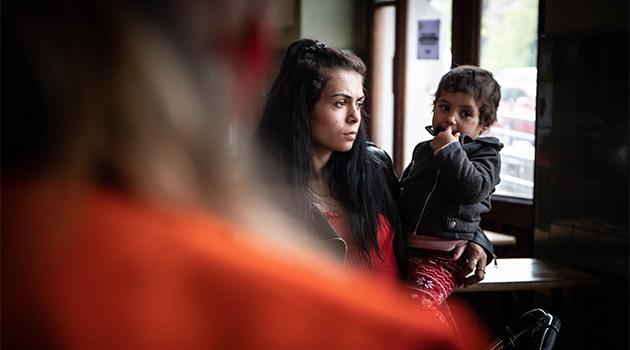Number of homeless Romani refugees from Ukraine sleeping at main train station in the Czech capital seems to be decreasing for now

The number of homeless Romani refugees from Ukraine who have been living at the main train station in Prague, Czech Republic seems to be decreasing and the situation may be improving; Mayor of Prague Zdeněk Hřib (Pirates) gave that assessment yesterday on the CNN Prima News channel’s Terezie Tománková Program. The mayor said he is convinced the situation will be resolved by the end of May.
Representatives of nonprofit organizations providing aid at the main train station also confirmed the apparent decline in homeless Romani refugee numbers to Romea.cz. According to the mayor, on Saturday a group of about 80 homeless Romani refugees from Ukraine left for Hungary.
There were about 260 such people sleeping at the main train station on Saturday at 23:00 compared to about 500 such people there at that same time on previous nights, the mayor said. Nonprofit organizations providing aid at the main railway station in Prague also confirmed the apparent reduction in the number of homeless Romani refugees from Ukraine.
“I can confirm that the number of refugees at the station has decreased by approximately 20 %,” said crisis intervention worker Michal Horniecky of the Organization for Aid to Refugees, which is assisting at the station. “From Sunday to Monday, 310 refugees were sleeping overnight at the station, 160 of them were in a parked train, 100 were on the floor in the hall, and 50 in the room for mothers with children,” Horniecky added.
Hundreds of refugees from Ukraine, mainly Romani families with children, have been living at the main train station in Prague after becoming homeless here. Representatives of nonprofit organizations who are providing aid on the spot are criticizing the approach taken toward the Romani refugees.
The mayor said the situation involves three different groups. One group is people who are waiting for confirmation as to whether they are citizens of Hungary as well as being citizens of Ukraine.
Those people are being accommodated in the “tent city” in Prague’s Troja neighborhood. A second group is those who do have Hungarian citizenship in addition to Ukrainian citizenship and are therefore not entitled to aid as refugees in the Czech Republic.
The final group consists of people who allegedly refused the accommodation offered to them by the state or who have returned to the station for some other reason. According to Hřib, those people have lost their eligibility for any further aid, which is why they are now homeless.
The mayor said that the main railway station is conducting an informational operation mainly involving nonprofit organizations and the police. Authorities, aided by civil society, are attempting to explain to people who are not eligible for assistance in the Czech Republic that it would be best for them to return to their “homeland”, by which is usually meant the EU Member State of Hungary, even if they have never lived there.
